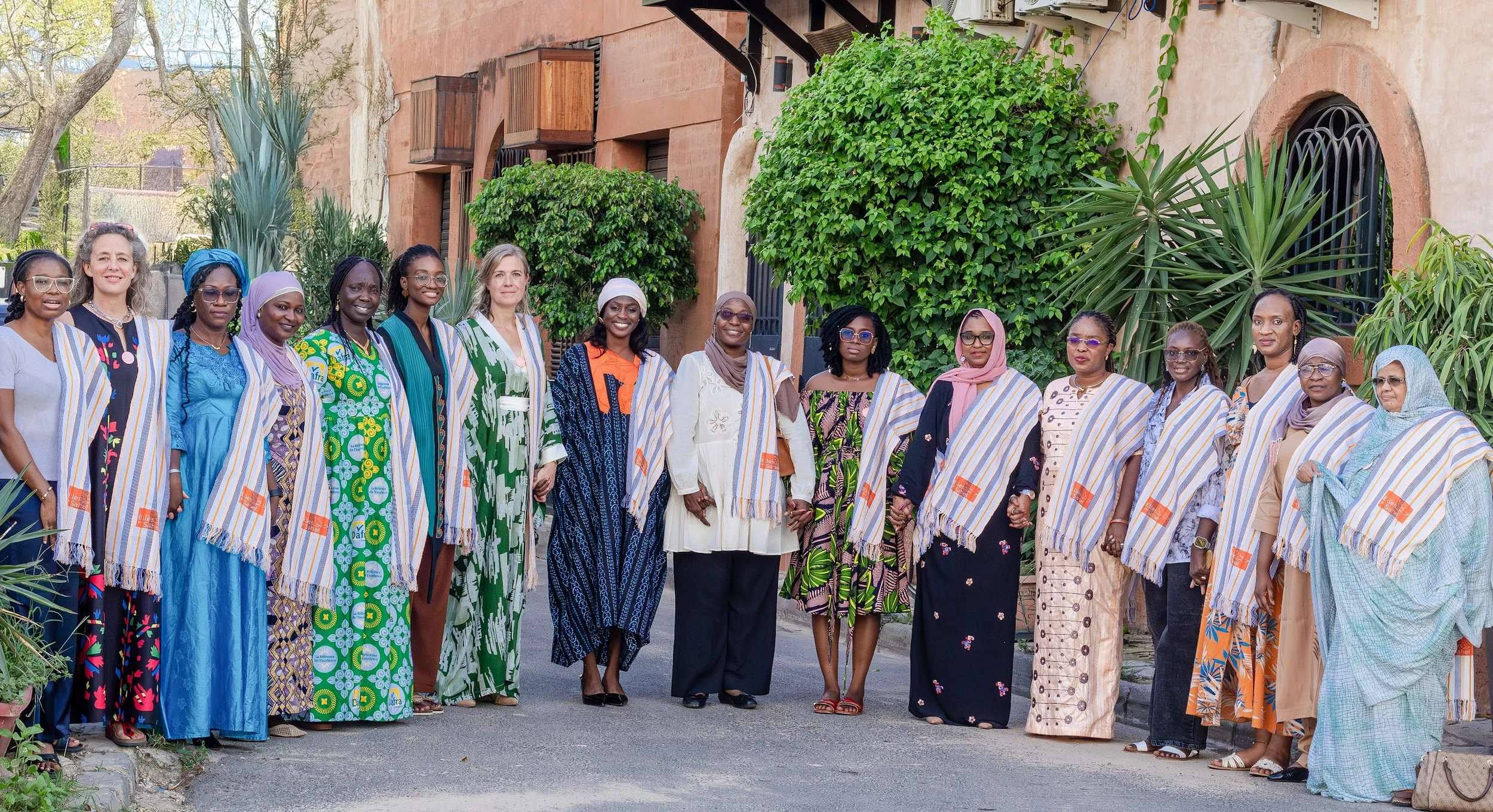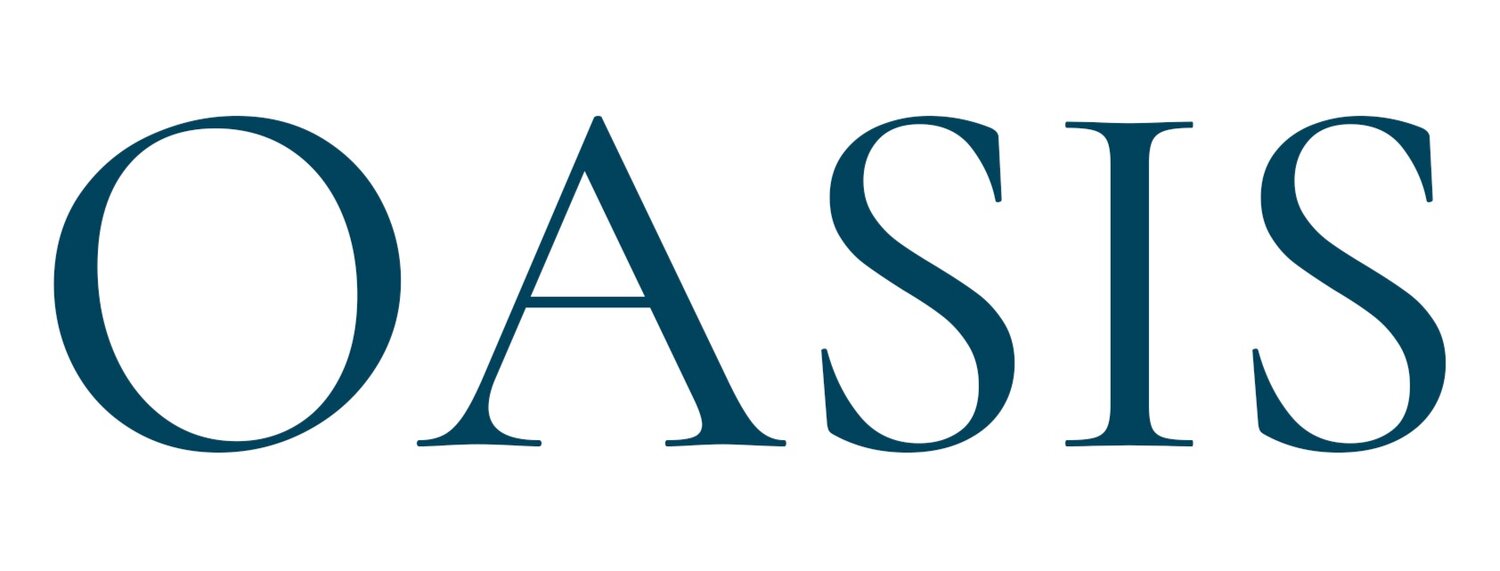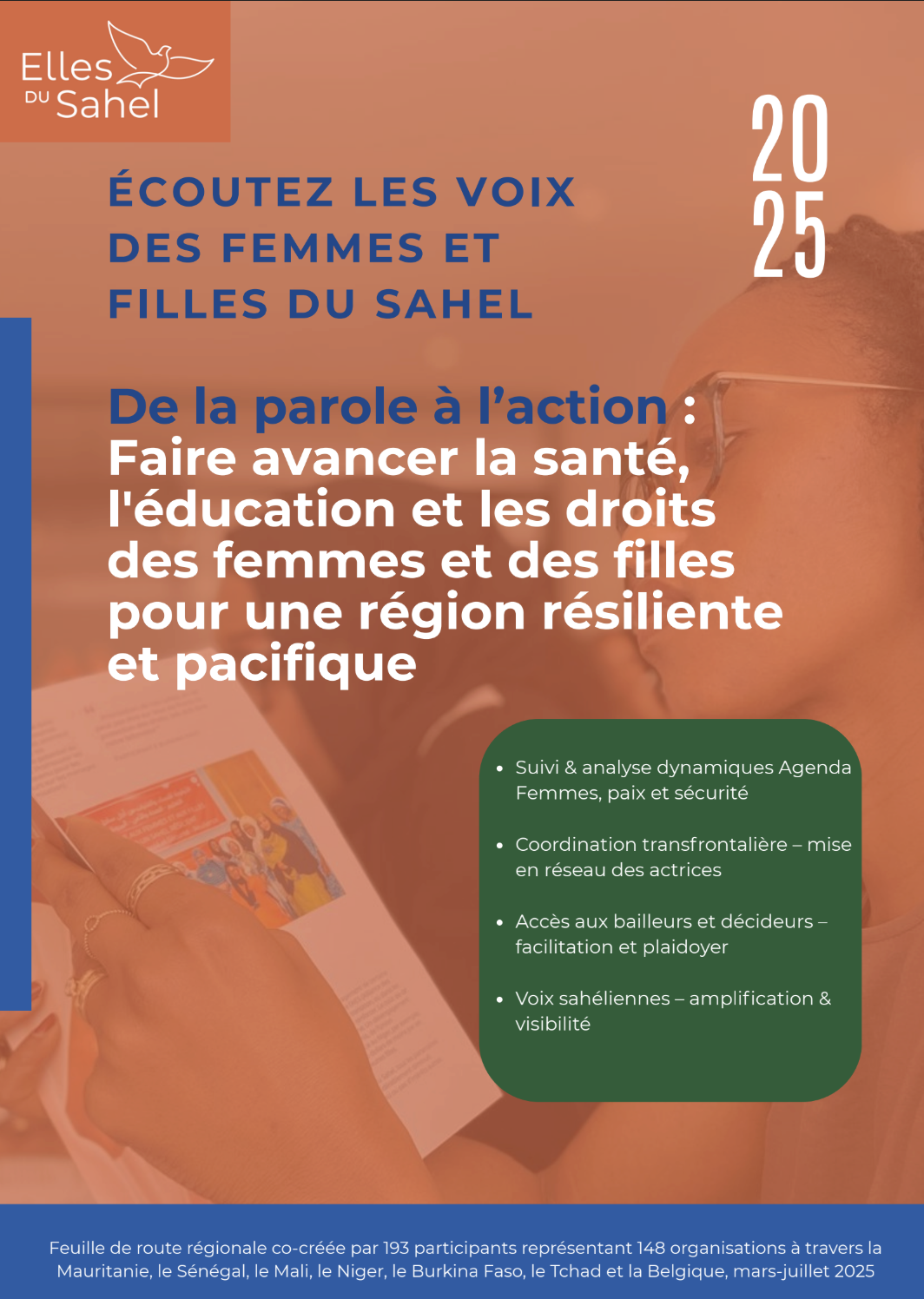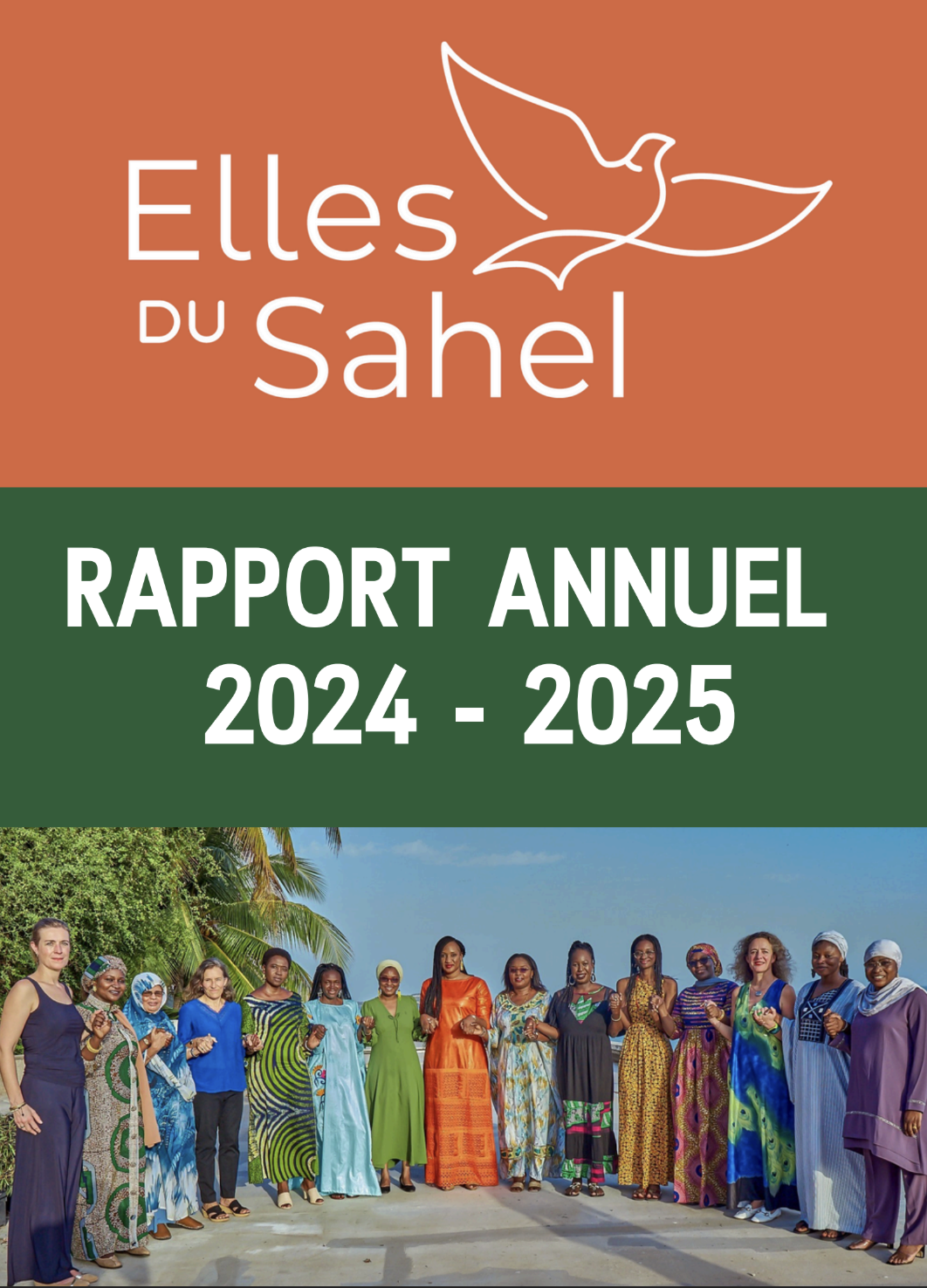
Abundant evidence shows that education and sexual and reproductive health and rights (SRHR), are cornerstones of sustainable development and are essential for girls and women to realize their full potential. It is time to act.
This is why a judge, a slam poet, a parliamentarian, a climate activist, a feminist, a peace-builder, a health-care provider, a researcher, a human rights activist, a youth counselor, an education specialist, a sexual and reproductive health and rights advocate, and a writer have joined forces, backed by their respective networks, to pursue increased and more coherent financing that reflects the leading role women and girls play in building a thriving Sahel.
Who are we?
Purpose of Elles du Sahel: With access to quality education and sexual and reproductive health and rights, girls and women will thrive, contributing to the stability of the Sahel region and enabling it to flourish.
The Elles du Sahel is not a photo opportunity. It is is a multi-sectoral network of sixteen women activists from the Sahel, the European Union, and the United States, that draws on their expertise, networks, and passion for gender equity. The Elles du Sahel is conducting advocacy at the local, national, regional and international levels towards increased and more coherent funding envelopes for girls’ education and sexual and reproductive health and rights. This is based on the knowledge, the needs and the requests of women and girls in the Sahel.
Program Highlight
Climate change, population growth, and violence are increasing suffering.
Poverty, food insecurity, drought, violent extremism, and forced displacement are ravaging the Sahel and causing unimaginable human suffering. This situation has been exacerbated by the climate crisis and by rapid population growth, which in the Sahel is the highest in the world. With millions of children out of school, a high unmet need for family planning, and most girls getting married while they are still adolescents, the Sahel is ground zero for girls’ education, access to SRHR, and protection from violence.
We must put people first, especially girls and women.
Despite the urgency, the Sahel has been pushed to the background as other crises have taken center stage globally, and as the overall funding for development has declined. A growing share of national and international funding is being spent on military and ineffective interventions. Les Elles du Sahel are determined to change this – to restore the focus on the people of the Sahel, with a special focus on women and girls.
A rights-approach can undo the gridlock.
The Elles du Sahel fight for women’s and girls’ human rights, emphasizing their right to a good education, to make their own decisions concerning their health, body and sexual life, and to live their lives free from violence. These three human rights-based approaches promote women’s full engagement in society and will lead to a more equitable and prosperous future for the Sahel by making communities healthier, safer, more resilient, better resourced, and more stable.
Regional investments focused on the Sahel are necessary.
The Sahel must be supported as a region because what happens in one country automatically affects all the others. The holistic advocacy approach of the Elles du Sahel – focused on long-term investments in women and girls’ autonomy across the region – offers a vital investment opportunity for countries and for donors. This approach will enable the Sahel to break through the current impasse, reduce human suffering, and open the window for a demographic dividend. Simultaneous investment in girls’ education and sexual and reproductive health and rights will yield enormous benefits for the region.
Addressing inequality is the smartest thing to do.
The evidence clearly shows that investments in the education, health and well-being of women and girls will translate into a stronger and more resilient region. Les Elles du Sahel will appeal to donors, to heads of state, to initiatives such as SWEDD and the GFF, and to platforms such as the Sahel Alliance and the G5 Sahel. The Elles du Sahel will call for greater coherence between commitments, evidence and actions so that funds are allocated quickly, spent where the impact will be most significant, and scaled up across the Sahel.
Epiphanie NODJIKOUA DIONRANG
President, Tchadian Women's Rights League / Slam Poet
Representative of Elles du Sahel, Tchad
Halimatou ZIKA SOMBEIZE
Founder, Nigerien Cell of Young Women Leaders
Representative of Elles du Sahel, Niger













